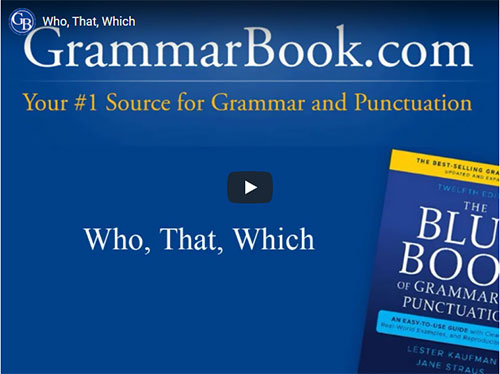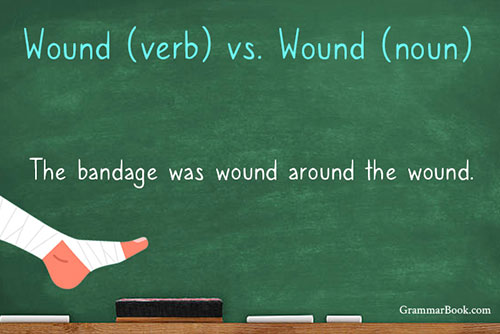Compound Sentences: What Is a Compound Sentence?
|
|
English has four types of sentence structures: simple, compound, complex, and compound-complex. In this review, we'll discuss what a compound sentence is.
A compound sentence is one that includes at least two independent clauses that are connected by a conjunction and a comma or by a semicolon.
Examples
Ricky went to the park on his bike, and Bobby went on his skateboard.
I would like a black pen, but Vanessa would like a blue one.
They haven't said who the new superintendent will be; they will announce it tomorrow. |
Each main (independent) clause in the examples is underlined. In the first two sentences, the independent clauses are joined by a coordinating conjunction (and, but). In the third example, the two main clauses are connected by a semicolon.
Let's look at a couple more examples to reinforce what a compound sentence is:
Aileen works for a pharmacy, and Chinaka works at a research facility.
The Chicago Cubs won the World Series in 2016; it was their first since 1908. |
In this first example, two main clauses are joined by the coordinating conjunction and. In the second example, two main clauses are connected by a semicolon.
Compound Sentence: Discern From Compound Predicate
In understanding what a compound sentence is, it's important that we not confuse a compound sentence with a compound predicate.
As we've discussed, a compound sentence has two separate main clauses joined by a coordinating conjunction or a semicolon. A compound predicate, on the other hand, involves two or more actions (verbs) performed by the same sentence subject within the same clause.
Compound Sentence
Shane drove a Chevy Impala in 1976, and he washed it every week.
Compound Predicate
Shane drove a Chevy Impala and washed it every week in 1976. |
In the first sentence, we describe two actions as two separate main clauses. In the second sentence, we have one subject (Shane) performing two actions (drove and washed) within a single main clause; this is an example of a compound predicate.
Let's consider one more comparison for good measure:
Compound Sentence
Wanda studies forensic science, but she wants to be a veterinarian.
Compound Predicate
Wanda studies forensic science but wants to be a veterinarian. |
In the first example, two main clauses joined by a conjunction express two separate thoughts as a compound sentence. In the second example, the same sentence subject (Wanda) performs both actions (studies and wants) in the same main clause.
Compound Sentence: Avoid Loose Constructions
As writers of American English, we want to communicate with precision and eloquence. Expressing ourselves with succinct constructions helps to achieve this.
For good technique, we should avoid writing compound sentences that become aimless and loose. A common cause is stringing together multiple clauses rather than dividing them for clarity, pacing, and focus.
Example
| Judith visited her aunt, and they had tea, but they also played backgammon, and then Judith kissed her good-bye. |
This sentence is a wandering report of what transpired between Judith and her aunt. We could improve it in a few different ways:
Judith visited her aunt for tea. They played backgammon, and then Judith kissed her good-bye.
Judith visited her aunt to have tea and play backgammon. Afterward, Judith kissed her good-bye.
Judith visited her aunt. They had tea and played backgammon, and then Judith kissed her good-bye. |
Related Topics
Becoming Savvy with Sentence Structures: Part One
Compound Predicates
|
View and comment on this
article on our website.
|
|
|

|
Pop Quiz
Now that we've reviewed what a compound sentence is, identify which of the following sentences are compound and which are not.
1. I will add up the total, and then I will tell you how much you owe.
2. Francesca lit the torch and walked with it through the shadowy house.
3. After Jermaine attended the job fair, he decided to pursue a career in environmental safety.
4. You will bake the cake, and I will frost it.
5. The rain fell hard for days, but the basement did not flood.
|
 |
The Blue Book of Grammar and Punctuation
by Lester Kaufman and Jane Straus |
The Authority on English Grammar! Twelfth Edition Now Available
An indispensable tool for busy professionals, teachers, students, homeschool families, editors, writers, and proofreaders.
Available in print AND as an e-Book! Over 2,000 copies are purchased every month!
To order the book, simply click the link to order the book from the GrammarBook.com website.
|
Free BONUS Quiz for You!
[[firstname]], because you are a subscriber to the newsletter, you get access to one of the Subscribers-Only Quizzes. Click here to take a Their vs. There vs. They're Quiz and get your scores and explanations instantly!
We will be adding many more quizzes this year to our already substantial list of them. If you have suggestions for topics we have not yet covered, please send us a message at help@grammarbook.com.
|
Hundreds of Additional Quizzes
at Your Fingertips
Subscribe now to receive hundreds of additional English usage quizzes not found anywhere else!
Teachers and Employers
Save hours of valuable time! You may assign quizzes to your students and employees and have their scores tallied, organized, and reported to you! Let GrammarBook.com take the hassle out of teaching English!
"Fun to test my skills."
"The explanations really help ... thanks!"
"I can select the quizzes to assign to my students, and then the results are reported to me automatically!"
99¢
QUIZZES
|
Don't need all the quizzes?
You can now purchase the same quizzes individually for ONLY 99¢ each.
Purchase yours here.
|
If you think you have found an error in a quiz, please email us at help@grammarbook.com
|
Wordplay

Pop Quiz Answers
1. I will add up the total, and then I will tell you how much you owe. compound
2. Francesca lit the torch and walked with it through the shadowy house. not compound
3. After Jermaine attended the job fair, he decided to pursue a career in environmental safety. not compound
4. You will bake the cake, and I will frost it. compound
5. The rain fell hard for days, but the basement did not flood. compound
|
 |
English In A Snap:
68 One-Minute English Usage Videos FREE |
Learn all about who and whom, affect and effect, subjects and verbs, adjectives and adverbs, commas, semicolons, quotation marks, and much more by just sitting back and enjoying these easy-to-follow lessons. Share them with your colleagues (and boss), children, teachers, and friends as well! Click here to watch.
|
|





